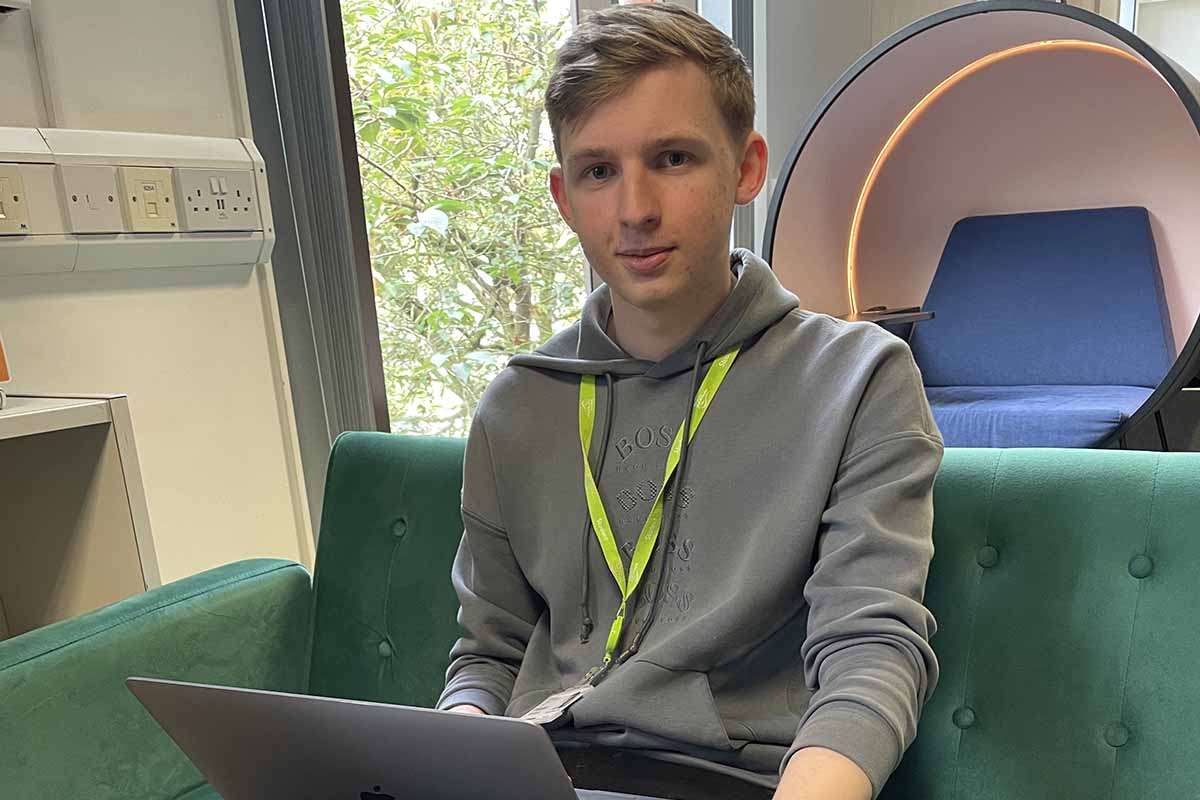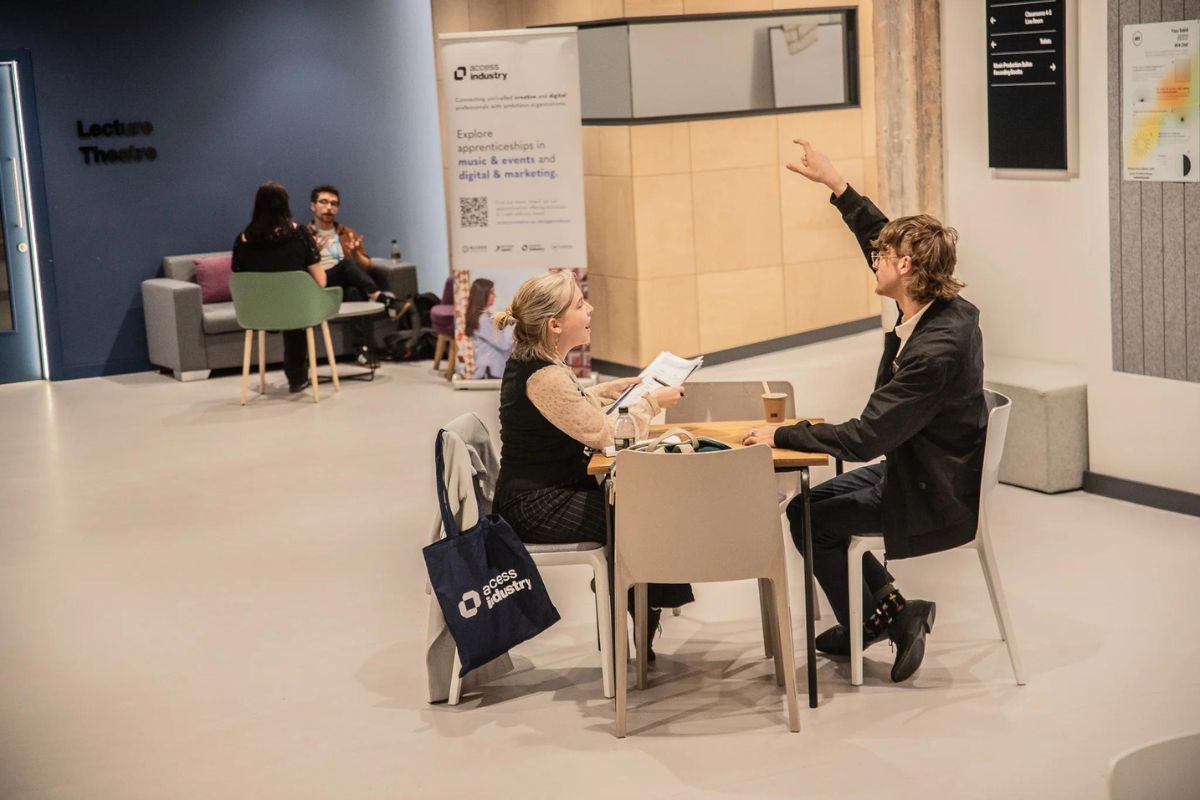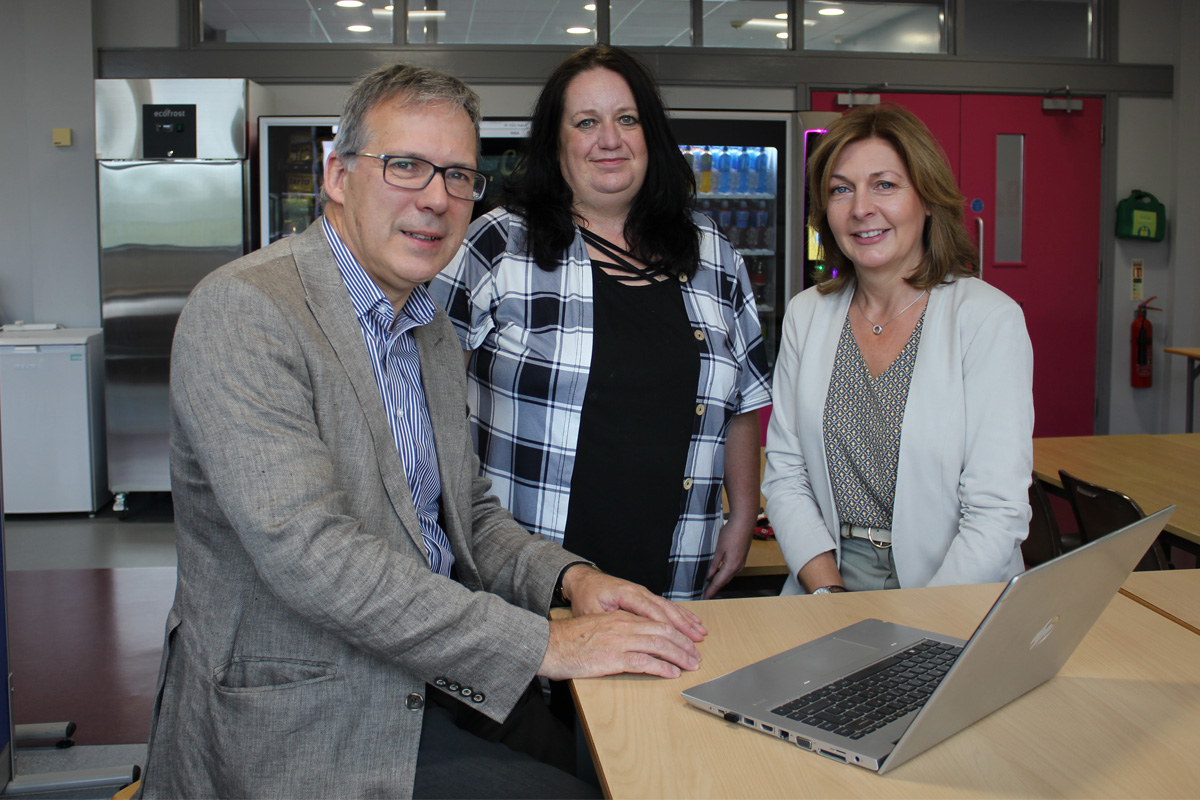Bringing academia and business together through a Knowledge Transfer Partnership

There comes a point on any start-up journey when you need to tap into a knowledge stream that you might not have within the business, to explore innovative solutions that will accelerate growth.
Recognising that you have reached this juncture is relatively easy, finding the support and expertise required is more challenging and potentially risky.
We were introduced to the concept of a Knowledge Transfer Partnership (KTP) through a senior lecturer at the University of the West of Scotland (UWS), who was working with us on several undergraduate work experience programmes. A quick discussion led to an introduction to Dr Stuart Mckay, Senior KTP Manager at UWS, who happens to be one of the UK’s leading lights in this area, and before long we were working together on a proposition for a project that, a year on, has resulted in us welcoming Computer Vision and Machine Learning specialist Dr Aasim Khurshid into our team. The work he will be doing with us over the next couple of years will be invaluable and his expertise is something we would have struggled to find without going down the KTP route.
So, what is a KTP and how easy is it to get one? Essentially, it’s a three-way partnership between a business, a knowledge base partner – in our case a university – and a suitably qualified graduate or associate as they are known (the average age currently is 30 across the 800 KTPs running in the UK). It is designed to meet a core strategic need to improve your business’ performance and productivity.
The associate is recruited and employed by the knowledge base partner but works in your business and to your terms and conditions (hours of work, holiday entitlement etc). The knowledge base partner commits half a day a week of support, mostly face-to-face and on-site at the business, and there is a supporting budget providing up to 67% of project costs (against associate salary, academic team, consumables, training and development, travel and subsistence). On average, the annual KTP budget is around £90k p.a.. A small to medium sized business would be liable for £30k of this, usually payable quarterly or monthly to the knowledge base partner. Overall the programme is worth £36 million and is overseen and part-funded by the UK Research and Innovation agency (UKRI) Innovate UK and delivered in partnership with the Knowledge Transfer Network (KTN) – there are a lot of acronyms to remember!
The application process is not a walk over by any means. Given the potential level of support offered to successful applicants, both financially and in resources, the proposed project is scrutinised at every stage prior to eventual submission. The level of due diligence applied to the sustainability and viability of both the company and the project is rightly significant. Dr Mckay guided us through each stage, and we were also greatly helped by the specialist knowledge of Dr Gerry Black, Senior KT Advisor at the KTN, who looked at our application with cold eyes. It was hard but necessary work, with the net result being the award of a quarter of a million-pound innovation project, that I believe will take our company to the next level.
We have gained access to skills and innovation techniques that we would be unable to fund or manage on our own. The KTP will help us focus on our core objective, which is to provide trusted and curated wellbeing content, through our Ashia service, to give people hope for a better and more inclusive future and a way to seek early help and support when faced with life’s adversities. Indeed, Dr Khurshid says this is what drew him to apply even though he had a great job with Samsung as a researcher in their Research and Innovation Centre SIDIA in Brazil. “I saw great potential in this work,” is how he describes the reason behind his application to work with us.
We are still in the early stages of our 30-month KTP, but we are already excited about where it will lead. Day-to-day, our Chief Operating Officer Paul Jeffrey is working most closely with Dr Khurshid and the team at UWS. “While we had a clear idea about what the KTP would help us with,” Paul says, “the important thing is that our minds are open to what we can do better. We are already being led towards some exciting new machine learning techniques that will improve our video processes and deliver an enhanced customer experience.”
One of the critical components of the likely success of a KTP is finding the right associate. The entire recruitment process was managed by the university and led to us interviewing around 20 highly qualified applicants from across the globe. Once Dr Khurshid became our preferred candidate, the university’s KTP team swung into action, organising his Global Talent visa, travel, and accommodation, ensuring that he arrived at our office relaxed, full of enthusiasm and ready to work. Blessed with a naturally positive outlook and determined to add real value, Dr Khurshid has settled into his new country, role, and team, brilliantly. A supporting environment which understands any potential cultural transition is important to consider if you go down the KTP route.
Although every KTP has a lead academic, as you can see from our experience the model also provides access to an academic team. The team is defined in the application, both to mitigate project risk and maximise the breadth and depth of knowledge the business can access.
Whilst we contribute to Dr Khurshid’s salary, the rest of the financial award pays for the facilities and access to expertise that we get through the University of the West of Scotland. Dr Khurshid is mentored by Professor Naeem Ramzan, Director of the university’s Affective and Human Computing for Smart Environment Research Centre. There are regular meetings to ensure we are exploring all avenues for innovation, and we are also part of a wider network connecting us to the other businesses the university is also supporting.
KTPs are a strategic priority at UWS and are fully supported by the UWS KTP Centre which provides dedicated pre and post-award support to partners and allows you to focus on successful project delivery.
We certainly landed on our feet, as the UWS KTP Centre team have an enviable record of application success, achieving 100% rate in recent years, as well as having the fastest growing KTP portfolio in the UK – a fact recognised by their recent Centre for Engineering Education & Development award for excellence in Knowledge Exchange. With experience of securing over 250 KTPs and £40million+ in secured funding for KTP partnerships across the UK, the UWS KTP Centre team are well worth contacting if you would like to learn more about the programme or even apply for your own KTP. The process is supported from initial concept to project completion. Grants of up to 67% can be accessed and global recruitment of the associate helps ensure the best team is selected.
But what about impact, project success and downstream benefits from KTP? Perhaps unsurprisingly, especially as the programme has a history of nearly five decades in the UK, the metrics are compelling. Not only do over 90% of projects complete successfully, but a very significant proportion exceed original expectations in terms of business impact, academic outputs, and associate career development. When they do, they are graded A or B and are eligible for progression to the UK National KTP Awards, further enhancing your business’ profile and reputation. In terms of return on investment, independent reporting has shown the KTP programme delivers 8:1 ROI in terms of Gross Value Added – another reason why the programme has such a long and rich history in the UK, spanning more than 13,000 projects.
Among the other KTPs UWS has delivered are one that helped the design of a carbon fibre composite smart and ultralightweight wheelchair which went on to secure a global award and $1.5m in funding. And another in mechatronics that significantly transformed component production, with yields increasing by almost 2000%, and production time decreasing by 4000%.
It will be a couple of years before we know what the end result is for us, but there is no doubt that everyone in our business is excited about the potential. We are proud and privileged to have such a highly qualified academic working alongside us, challenging our thoughts, striving to improve our business processes, and maximising our use technology.
The KTP has given us access to skills, innovation techniques and academia that would have been impossible for us to access, fund or manage by ourselves. It gives us confidence, and credibility, and enables us to view our challenges through a different lens. I would thoroughly recommend that other businesses take a serious look at the potential that a Knowledge Transfer Partnership offers to propel you forward.
By Phil Worms, CEO Frog Systems











Responses